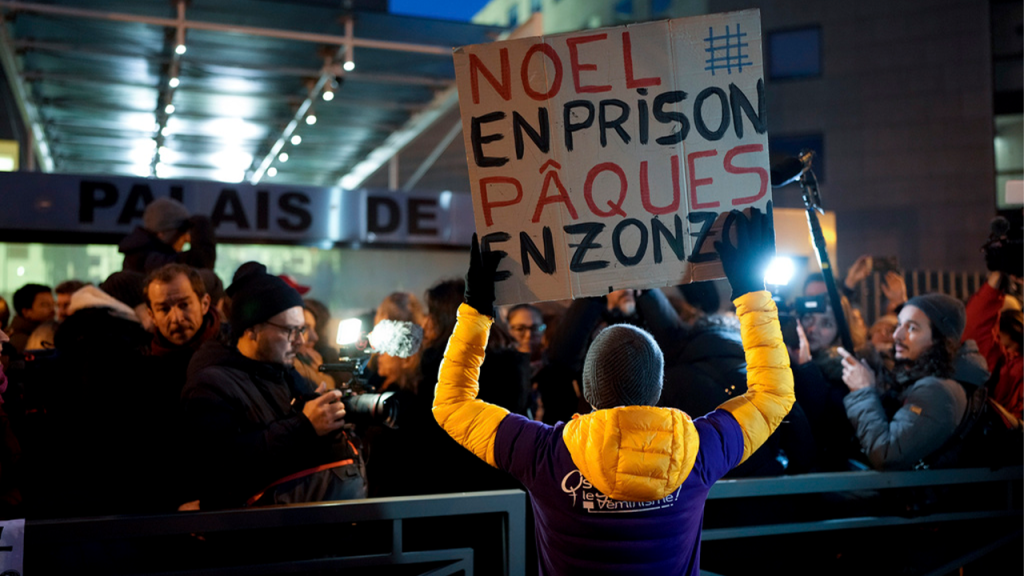Dominique Pelicot, a 72-year-old Frenchman, has been found guilty of drugging and repeatedly raping his wife, Gisèle Pelicot, over a period spanning nearly a decade. The Avignon court sentenced him to the maximum penalty of 20 years imprisonment for the heinous crimes, which involved surreptitiously administering tranquilizers to his wife and inviting strangers he met online to participate in the assaults. Pelicot meticulously documented the abuse, amassing a disturbing collection of over 20,000 photos and videos. This shocking case has sent ripples throughout France, sparking national conversations about sexual violence, rape culture, and the urgent need for stronger protective measures for women.
The trial, which stretched over three months, exposed the horrifying extent of Pelicot’s depravity. He admitted to using the internet to recruit men who shared his perverse desires, turning his own home into a scene of repeated violations against his unsuspecting wife. Gisèle Pelicot, also 72, remained unaware of the abuse for years, believing she was in a loving and trusting marriage. The discovery of her husband’s heinous acts shattered her world and brought to light the insidious nature of domestic violence, where perpetrators can exploit positions of trust and intimacy to inflict unimaginable harm.
The case became a landmark moment in French legal history due to Gisèle Pelicot’s extraordinary courage. Breaking the silence and stigma often associated with sexual assault, she waived her right to anonymity, insisting that the trial be held in open court. Her unwavering determination to expose the truth, even with the harrowing evidence presented, including the videos recorded by her husband, has transformed her into a national symbol of resilience and a champion for women’s rights. Her decision to face her abuser and the other perpetrators publicly empowered countless other victims to come forward and share their stories, further fueling the national conversation about sexual violence.
The trial also exposed the complicity of 49 other men who participated in the assaults. These individuals, who answered Pelicot’s online solicitations, face sentences ranging from 10 to 18 years. An additional defendant, tried for aggravated sexual assault, faces a potential four-year prison term. The prosecution sought the maximum penalties for all involved, underscoring the severity of their crimes and the collective responsibility for the sustained abuse inflicted upon Gisèle Pelicot. The sheer number of individuals involved highlights the dark underbelly of online communities that facilitate and normalize such predatory behavior.
The Pelicot case has become a catalyst for broader societal reflection in France. It has forced the nation to confront uncomfortable truths about the pervasiveness of sexual violence and the inadequacy of existing mechanisms to protect victims. The case ignited passionate debates about consent, power dynamics within relationships, and the role of technology in facilitating abuse. Calls for legislative changes, stricter online regulations, and increased support services for survivors have gained significant momentum in the wake of the trial, demonstrating a growing societal commitment to addressing the root causes of sexual violence.
Gisèle Pelicot’s bravery has not only inspired individual acts of courage but has also galvanized collective action. The case has served as a rallying cry for feminist movements and advocacy groups across France, pushing for stronger legal frameworks, greater public awareness, and a more proactive approach to preventing sexual violence. The national conversation spurred by this case represents a pivotal moment in France’s journey towards creating a safer and more equitable society for women. The legacy of Gisèle Pelicot’s resilience will undoubtedly continue to shape the fight against sexual violence and inspire future generations to stand up against injustice.










